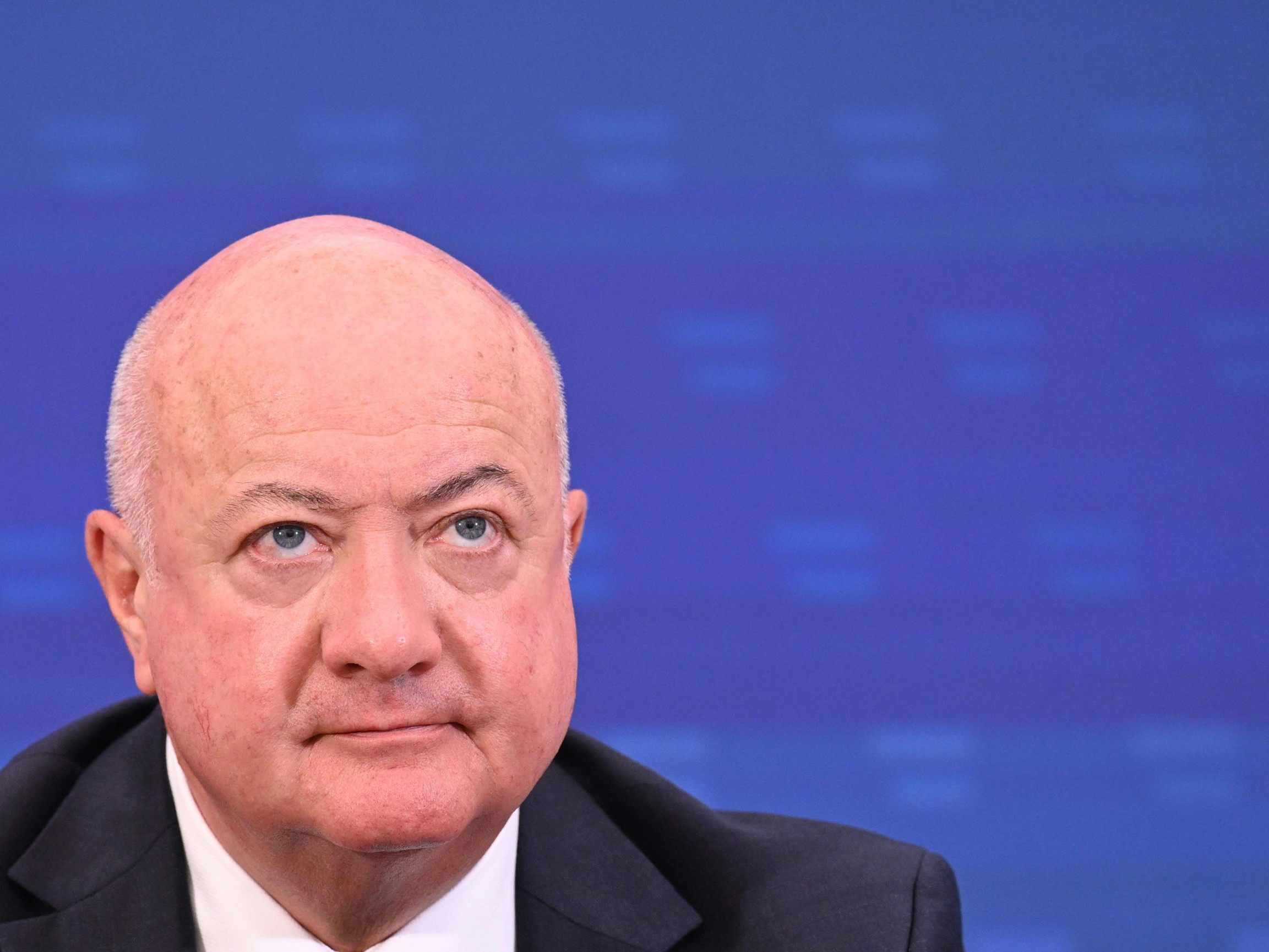Iranian Nuclear Program: Negotiations in Vienna?

"Vienna would be suitable as a negotiation venue and seat of the Atomic Energy Organization," he said on Wednesday in the EU main committee of the National Council. Stocker welcomed the fact that the USA has intervened in the conflict between Israel and Iran as a "mediator" and "determining force" and that a ceasefire has been achieved.
Stocker plans talks with Netanyahu
Stocker said that in this context he also plans talks with Israeli Prime Minister Benjamin Netanyahu and the Sultan of Oman, Haitham bin Tariq. He has already spoken with IAEA Director General Rafael Grossi, the Chancellor reported in a discussion on the EU summit on Thursday and Friday. Stocker assessed the risk of the conflict leading to a blockade of the Strait of Hormuz with correspondingly devastating impacts on international oil supplies as "not present." "There are many interests opposing this, including Iran's own interest."
The EU summit, which will also address the topics of defense, migration, Ukraine, enlargement, and the EU budget, will likely be dominated by the military conflicts in the Middle East. European Minister Claudia Plakolm (ÖVP) expressed opposition to suspending the association agreement with Israel in response to a question from Green National Council member Meri Disoski. "We need the communication channels (to Israel, note). Suspending the association agreement would precisely endanger that," she said.
The debate also covered the complete halt of Russian energy supplies and a commitment to the EU climate targets for 2040. Corresponding motions by the Greens also remained in the minority, as did two FPÖ motions on the topics of migration and against the supposedly neutrality-threatening closer cooperation between the EU and NATO.
Head of government raised eyebrows
On the topic of the EU budget, Stocker raised eyebrows by seemingly moving away from Austria's previous opposition to EU own resources. As Austria's objective for the negotiations on the multi-annual budget from 2028, he stated that neither the overall budget nor Austria's contributions should increase. However, in the next period, the repayment of the Corona recovery aid taken out by the EU Commission will also begin, amounting to 30 billion euros per year. "New own resources are something that is being considered. The discussion is moving in this direction," he said.
Stocker rejected a rapid full membership of the current accession candidates in response to a question from FPÖ MP Axel Kassegger. "I don't see an accession in 2030," he said. Instead, a "gradual integration" of the candidate countries should be pursued, for example by allowing them to participate in meetings without voting rights. Plakolm reaffirmed the Austrian position that "there cannot be two classes of accession candidates" and specifically referred to the EU Commission's proposal to abolish mobile roaming charges only for Ukraine. There is also a need for "tangible and noticeable progress" for the people in the Western Balkans.
Stocker also supported his initiative for a reinterpretation of the European Convention on Human Rights (ECHR) in the area of migration. In this regard, a meeting of like-minded states is planned on the sidelines of the EU summit, he announced. It is neither about changing the convention nor restricting the court's independence.
"It is a rule of law instrument, to be interpreted authentically"
Rather, the member states should decide on a so-called "authentic interpretation," meaning to instruct the court on how certain articles of the ECHR should be interpreted. "It is a rule of law instrument, to be interpreted authentically," said the lawyer. However, this requires an agreement among the individual member states. "We will discuss in the next meetings how we will deal with this issue in the European Council," said Stocker, who also pointed out that, in addition to the EU members, other European states are also part of the ECHR.
Ukrainian President Volodymyr Zelensky will also participate in the EU summit, Stocker said. During his visit last week, he proposed Austria as a negotiation venue, but the situation is currently "quite clear," said the chancellor. Peace negotiations cannot take place at the moment because Russia has no interest in them. "As long as (Kremlin chief Vladimir) Putin believes that he achieves more in war than in negotiations, it will be very difficult," said Stocker. It is all the more important that Europe continues to stand in solidarity with Ukraine. If this solidarity is not present, "then Putin will certainly believe that he achieves more in war," said Stocker, who also expressed the expectation that this issue will "catch up" with US President Donald Trump again, after he has "changed the playing field from Ukraine to Iran" in the meantime.
(APA/Red)
This article has been automatically translated, read the original article here.





